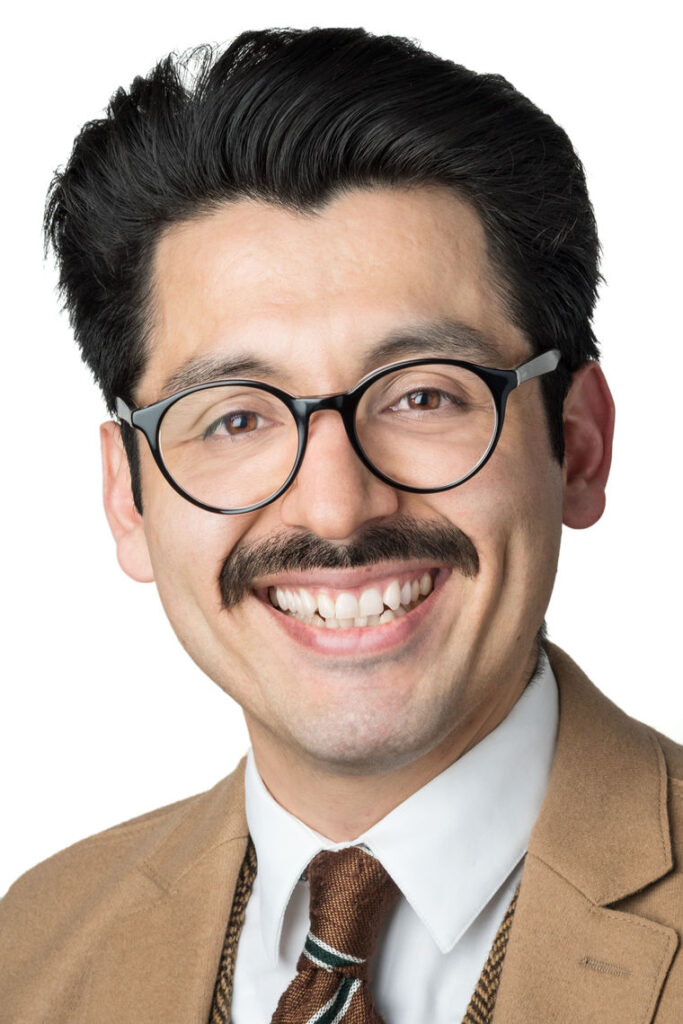- Fellow Highlights
Looking Back at the Fellowship: Sociology PhD Student Saúl Ramírez
2020 Paul & Daisy Soros Fellow Saúl Ramírez is a graduate of Yale Law School who is now working on his PhD in sociology at Harvard University. Born in the United States and raised in Santa Ana, California, a predominantly working-class, Spanish-speaking, immigrant community, Saúl’s parents had relocated from El Sabino—an impoverished, rural town in Guanajuato, México—where their education had been limited to grade-school. Having supported their six children by working relentlessly in low-paying, precarious jobs for over forty years, Saúl’s parents continue to inspire him to chase his academic dreams to contribute to the quest for legal and social justice.
As a sociology PhD student, Saúl is a research assistant for Professor Mary Waters and intends on generating legal and sociological scholarship on crimmigration: the intersection of the immigration and criminal justice systems. Wishing to eradicate mass incarceration and deportations, issues that profoundly impact families like his, Saúl hopes to educate, mentor, and support future generations of students, especially other New Americans.
We caught up with Saúl about what’s next and what the Fellowship has meant to him:
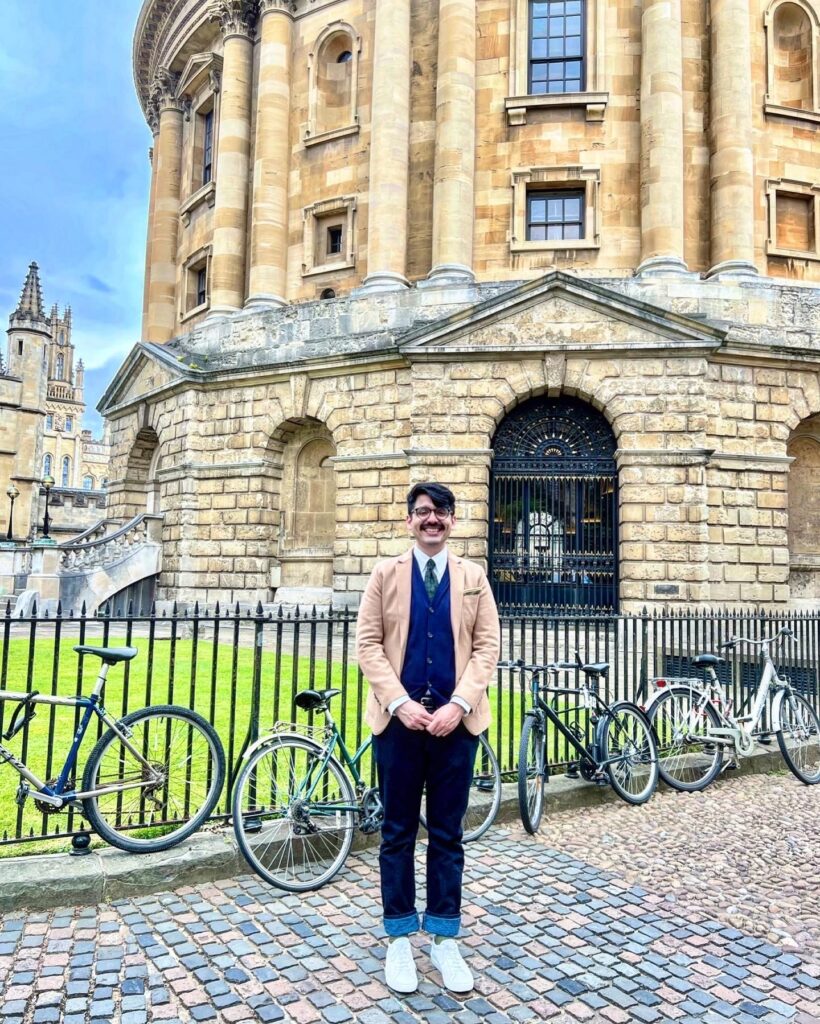
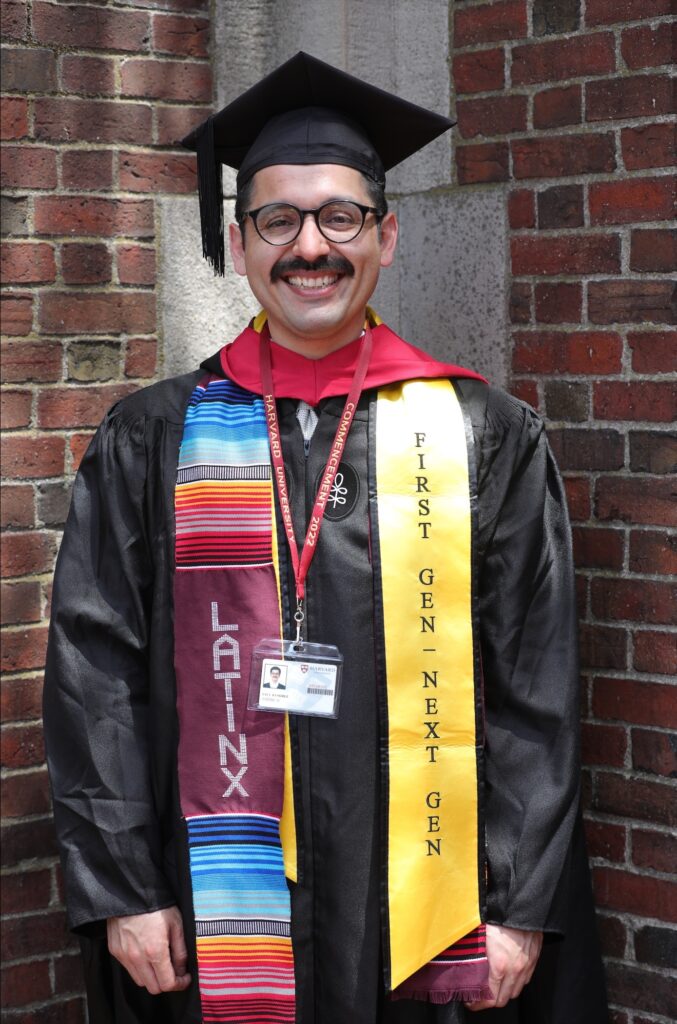
Where are you with your graduate program now? Whether you’re still in school or you’ve graduated, what’s the next step for you?
As a third-year graduate student, I recently completed the course work, teaching fellowship, and qualifying (written exam and paper) requirements of my sociology PhD program at Harvard University. This academic progress culminated in me earning an AM in sociology in May 2022. During the 2022–2023 academic year, I will work on writing and defending my dissertation prospectus. Thereafter, I will continue advancing my qualitative research—designing, conducting, and analyzing in-depth interviews—with immigrant populations, which I anticipate being at the heart of my dissertation.
There are so many paths beyond college–why did you feel graduate school was the best next step for you personally and/or professionally? Was it hard to take the risk of going to school or something you always knew you wanted to do? What has it helped you figure out or accomplish?
After graduating from the University of California, Berkeley, where my Chicano Studies honors thesis research on Central American unaccompanied immigrant minors—coupled with the immigration- and criminal-law-related consequences I witnessed my Latinx community enduring—fostered my passion for addressing social injustices engendered and exacerbated by criminal and immigration justice systems (crimmigration), I decided to pursue a legal education. At Yale Law School, I was fortunate to represent clients through legal clinics since my first year and pursue crimmigration research opportunities. While pursuing my legal education, I realized that advanced graduate work in sociology was critical to my ongoing development as a scholar. Although attending graduate school signified entering a more unpredictable career path, I decided to pursue a PhD in sociology at Harvard University. I chose this route after much deliberation—and with the unconditional support from my loved ones—to learn how to better design studies, analyze data, and develop theories in addition to teaching, mentoring, and supporting future students who wish to explore sociolegal inequities.
Why did you apply to The Paul & Daisy Soros Fellowships for New Americans? What ended up being the most important part of the Fellowship?
I applied to The Paul & Daisy Soros Fellowships for New Americans because I wanted to be a member of an interdisciplinary community that shares a special commonality: all of us are immigrants or children of immigrants in the United States. Although I first learned about the Fellowship while I was in law school, it was not until I began graduate school that I garnered the courage—while continuing to confront an overwhelming sense of impostor syndrome—to apply. Besides the amazing community, the Fellowship also afforded me indispensable financial liberty. While I was fortunate to receive a generous financial aid package from the Graduate School of Arts and Sciences at Harvard University, the tuition and stipend support from the Fellowship allowed me to focus on the research aspect of my sociology PhD program. Still, the most invaluable part of the Fellowship has been the opportunity to build community with other Fellows.
What advice would you give to someone who is thinking of applying to The Paul & Daisy Soros Fellowships for New Americans?
To eligible, prospective applicants who are contemplating applying, I encourage you to go for it! In my experience, the application process is at least two-fold: it can be an intimidating endeavor and an exceptional opportunity to reflect deeply on who you are, how your New American identity influences what you do, and where you envision yourself in the future. To begin, should you commit to applying, I believe it is imperative that you wholeheartedly believe in yourself first and foremost and, by extension, the potential strength of your application: a critical step to advocate for yourself zealously and compellingly. Furthermore, I recommend being as authentic—in your written materials, interviews, and other informal gatherings—as you feel comfortable and striving to make that genuineness come across by allocating ample time to write and revise your essays. Lastly, I advise—and this could be more challenging—that you avoid drawing unnecessary self-comparisons with current Fellows (or anyone else for that matter), as this could undoubtedly become unproductive, unnerving, and unhealthy; instead, channel the potential motivation you may feel into each milestone of your application cycle.
You’re now finishing up your second year of the Fellowship program. Has the Fellowship been what you expected?
The Fellowship has exceeded my expectations by leaps and bounds. Most importantly, from the first to the most recent interactions with the Fellowship, I have felt seen not merely because of where I study nor what I work on, but for who I am: a person who is more than a student and achievements. For instance, attending the Fall Conference in Nashville, TN was an excellent experience that allowed me to meet, conversate with, and learn from many Fellows. Lastly, the thoughtfulness of the Fellowship manifests itself in many forms, including, most recently, in a much-appreciated care package during finals season. I truly cannot emphasize sufficiently the value of being part of an astounding community of New Americans. ∎
Keep Exploring
-
 Read more: Q&A with MD/PhD Student Silvia Huerta Lopez
Read more: Q&A with MD/PhD Student Silvia Huerta LopezQ&A with MD/PhD Student Silvia Huerta Lopez
-
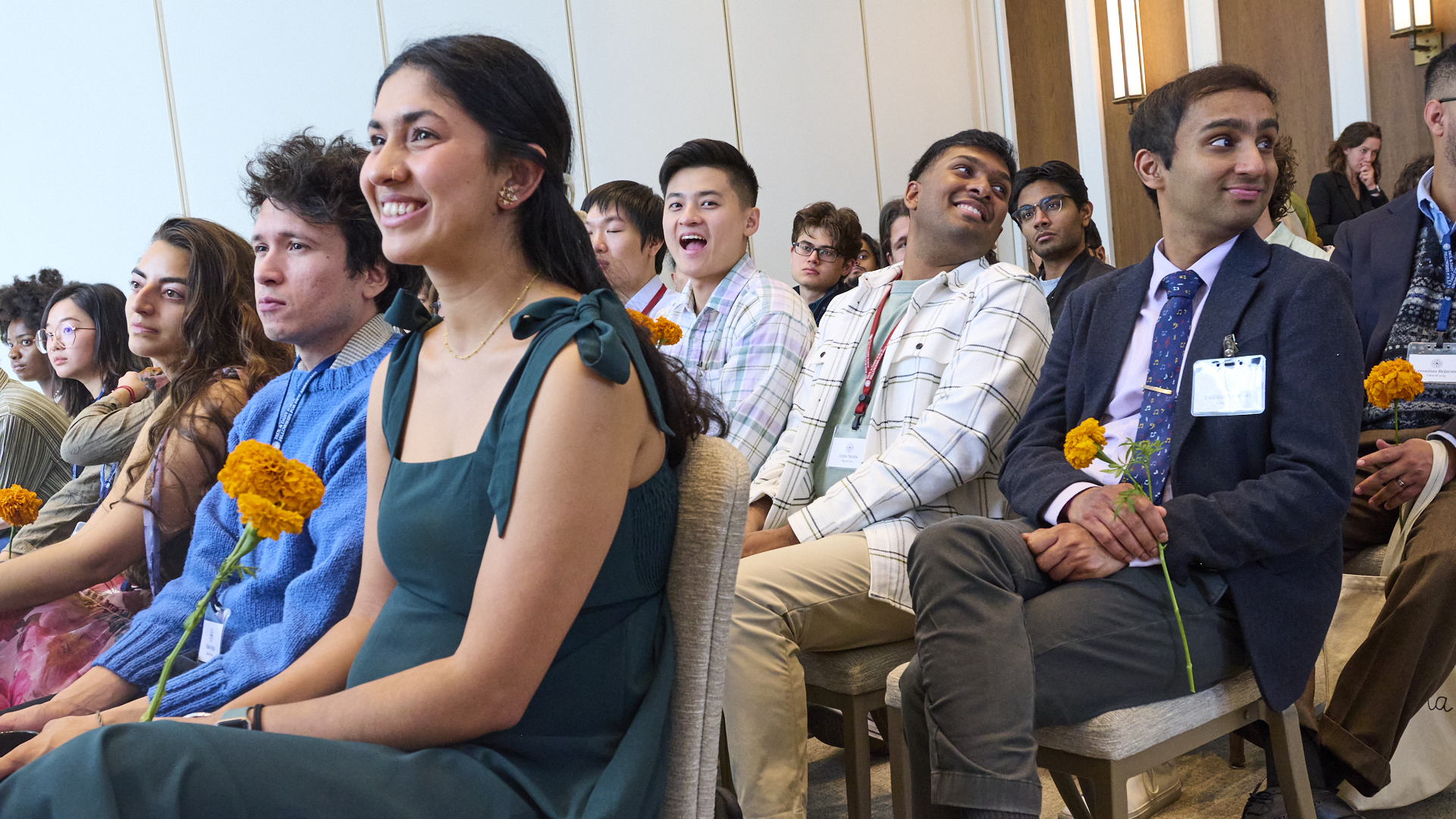 Read more: PD Soros Eligibility Guide for PhD Applicants
Read more: PD Soros Eligibility Guide for PhD Applicants- Applicant Information
PD Soros Eligibility Guide for PhD Applicants
-
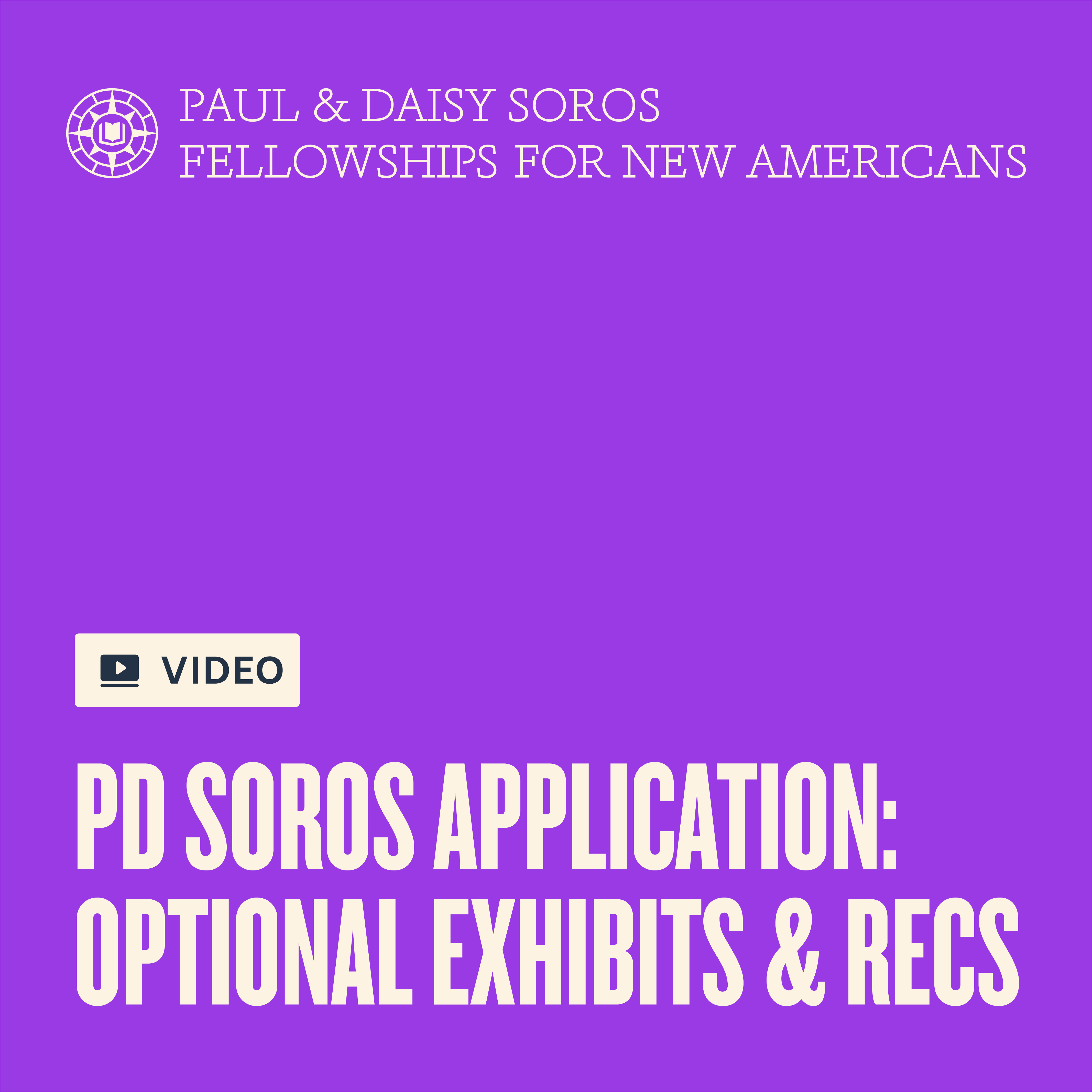 Read more: Watch: Optional Exhibits & Recommendations
Read more: Watch: Optional Exhibits & Recommendations- 2025 Information Sessions
Watch: Optional Exhibits & Recommendations
-
 Read more: Watch: Essay Writing information session
Read more: Watch: Essay Writing information session- 2025 Information Sessions
Watch: Essay Writing information session
